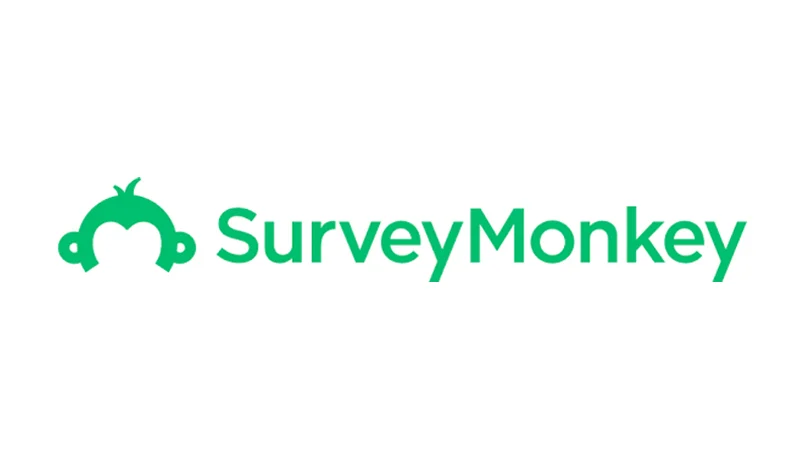Discover the top 5 online survey tools tailored for insightful data collection. This comprehensive guide compares features, usability, and pricing to help you choose the best platform for your research needs. Learn more at iMotions for in-depth analysis and recommendations.
Online survey tools have become indispensable for gathering feedback, conducting market research, and engaging with audiences. With an array of options available, choosing the right platform can be overwhelming. This article explores the five most popular online survey tools, delving into their unique features, ease of use, and suitability for various needs. Whether you’re a business owner, researcher, or educator, understanding these tools can empower you to gather valuable insights effectively.
Table of Contents

Google Forms
Google Forms, a widely used survey tool, presents both advantages and disadvantages that cater to varied user needs. Overall, Google Forms is ideal for simple, straightforward surveys, especially where cost and ease of use are primary considerations. However, its limitations in advanced features and analytics may necessitate alternative solutions for more complex data collection and analysis needs.
Pros:
- Accessibility and Ease of Use: Google Forms is renowned for its user-friendly interface, making it exceptionally easy for beginners to create and distribute surveys.
- Cost-Effective: As a free tool, it’s accessible to a wide range of users, from students to small businesses.
- Integration with Google Suite: Seamless integration with other Google applications like Sheets facilitates convenient data management and basic analysis.
- Customization: Offers a range of templates and design options, allowing for a degree of personalization in survey creation.
Cons:
- Limited Question Types and Features: Google Forms doesn’t support complex question types or advanced survey logic, limiting its use in sophisticated research.
- Basic Data Analysis: While it allows basic data compilation, Google Forms lacks advanced analytics capabilities, making it less suitable for in-depth data analysis.
- Privacy Concerns: Being an online tool, it raises questions about data privacy and security, especially for sensitive information.
- Limited Offline Functionality: It requires an internet connection for both creation and response collection, which can be a limitation in areas with poor connectivity.

Survey Monkey
SurveyMonkey is one of the most widely used survey portals online, and it is well-suited for users needing comprehensive survey design and advanced analysis features. It caters well to businesses, researchers, and educators who require detailed insights and have the resources to invest in its paid versions. However, for those seeking basic functionality without cost, or with a need for high response volumes without subscription, the limitations of SurveyMonkey’s free version may be a significant consideration.
Pros:
- Variety of Question Types: SurveyMonkey supports an extensive range of question types, including more sophisticated options like matrix questions, which enhances the flexibility and depth of surveys.
- Advanced Survey Logic: It offers features like skip logic and branching, allowing for more complex and tailored survey paths based on respondents’ answers.
- Analytical Tools: Even in its free version, SurveyMonkey provides basic analysis tools, and its paid versions offer advanced analytics, which are crucial for detailed data interpretation.
- Customization and Professional Design: The tool provides various customization options for survey design, contributing to a professional appearance and enhancing respondent engagement.
Cons:
- Cost: While it has a free version, many of its advanced features and analytics are locked behind a subscription, which can be a barrier for users with limited budgets.
- Response Limitations in Free Version: The free version has a cap on the number of responses, which can be restrictive for larger surveys.
- Learning Curve: Some users may find the interface and multitude of features slightly overwhelming initially, particularly those new to survey design.
- Limited Offline Capabilities: Similar to other online survey tools, it requires an internet connection for both survey creation and response collection, posing challenges in areas with limited connectivity.

Qualtrics
Qualtrics is a highly sophisticated survey tool best suited for academic research, large-scale market research, and enterprise-level feedback collection where detailed analysis and complex survey structures are required. Its cost and complexity make it less suitable for casual or small-scale users who do not require its advanced features.
Pros:
- Advanced Survey Design and Logic: Qualtrics stands out with its sophisticated survey design capabilities, including intricate logic patterns, randomized blocks, and conditional branching, which are essential for complex research needs.
- Extensive Question Types: It supports a wide array of question types, including specialized formats that are not commonly found in simpler survey tools.
- Powerful Data Analysis: Qualtrics excels in its analytical capabilities, offering advanced options like statistical analysis, cross-tabulation, and predictive intelligence, making it ideal for in-depth data interpretation.
- High Customization and Integration: The platform allows for extensive customization in survey design and can be integrated with a variety of other software and tools, enhancing its utility in diverse research environments.
Cons:
- Cost: Qualtrics is generally more expensive than many other survey tools, making it less accessible for individuals or small organizations with limited budgets.
- Complexity: The wide range of features and advanced options can present a steep learning curve, potentially overwhelming for new users or those with basic survey needs.
- Overkill for Simple Surveys: For users who require only basic survey functionality, the extensive features of Qualtrics can be unnecessary and may complicate the survey process.
- Limited Free Version: While it offers a free version, the functionalities are significantly limited compared to the full version, restricting the ability to fully leverage the tool’s capabilities without a paid subscription.

Typeform
Typeform is a unique and visually appealing online survey tool which makes it an excellent choice for surveys where user engagement and design are key priorities. It’s particularly well-suited for customer feedback, branding surveys, and other applications where a pleasant user experience is crucial. However, its limitations in advanced features and analytics might make it less suitable for complex research needs or for users requiring in-depth data analysis.
Pros:
- Engaging User Interface: Typeform is known for its aesthetically pleasing and user-friendly design, which enhances respondent engagement and improves the survey experience.
- Conversational Format: It specializes in a conversational, one-question-at-a-time format, making surveys feel more personal and less overwhelming for respondents.
- Customization and Branding: Offers extensive customization options, allowing users to tailor surveys to their branding and design preferences.
- Integration Capabilities: Easily integrates with various platforms and tools, facilitating seamless data collection and analysis workflows.
Cons:
- Limited Question Types for Free Version: The free version of Typeform has limitations on the number and types of questions you can use, which might be restrictive for more comprehensive surveys.
- Pricing: Advanced features, including some integrations and customization options, are available only in the paid versions, which might be a barrier for users on a tight budget.
- Basic Data Analysis: While it provides basic analysis tools, Typeform lacks the advanced analytical capabilities found in more research-focused survey tools like Qualtrics.
- Potentially Distracting Design Elements: While the design is a strength, the focus on aesthetics and format can sometimes overshadow the survey’s content or purpose, especially in more formal research contexts.

JotForm
JotForm is an excellent tool for a wide range of form-building needs, from simple surveys to complex registration forms and payment collection. It is particularly beneficial for businesses that need to integrate forms with other platforms. However, for users who require advanced survey functionalities and in-depth data analytics, JotForm may not be the most suitable choice.
Pros:
- Ease of Use and Flexibility: JotForm is known for its user-friendly interface and flexibility in form creation, making it suitable for users of all skill levels.
- Wide Range of Templates: Offers a vast library of templates, which can be easily customized, saving time and effort in form creation.
- Diverse Integrations: Seamlessly integrates with various platforms, including CRM systems, payment processors, and cloud storage services, enhancing its functionality in diverse applications.
- Robust Free Version: The free version of JotForm is quite generous in terms of the number of forms you can create and the submissions you can receive, making it a great option for individuals or small businesses.
Cons:
- Limited Advanced Survey Features: While JotForm is excellent for form creation, it may lack some of the advanced survey-specific functionalities and question types found in dedicated survey tools.
- Basic Data Analysis Tools: It provides basic reporting and analysis features, but for complex data analysis, users might need to rely on external tools.
- Pricing for Advanced Features: Advanced features, greater submission limits, and additional storage are available in the paid plans, which may be a consideration for budget-conscious users.
- Potential Overwhelm with Choices: The extensive range of templates and customization options can sometimes be overwhelming for users looking for a simple, straightforward solution.
Online Survey Tools for Human Behavior Research
When conducting human behavior research using iMotions, or other platforms designed for biometric research integrating various data streams like facial expressions, eye tracking, and emotional responses, it’s crucial to select an online survey tool that complements and integrates seamlessly with these advanced features. Here are key aspects to consider:
- Integration Capabilities: The survey tool should easily integrate with iMotions, allowing for synchronization of survey responses with biometric data. This integration is crucial for correlating survey answers with physiological responses.
- Complex Question Types: Look for a tool that supports a wide range of question types, such as Likert scales, semantic differentials, open-ended questions, and more. This variety is essential for capturing the nuances of human behavior and emotion.
- Customization and Flexibility: The ability to customize surveys is important. This includes altering the layout, design, and flow to suit different types of research and participants. Customization can help in reducing response biases and increasing engagement.
- Data Export and Analysis Features: Ensure the tool offers robust data export options compatible with iMotions for further analysis. It should allow for easy extraction of data in formats that can be analyzed alongside biometric data.
- Security and Privacy Compliance: Since human behavior research often involves sensitive data, the tool must adhere to strict data privacy and security standards, like GDPR, HIPAA, etc.
- Scalability and Reliability: The tool should be able to handle large numbers of responses without compromising on performance or data integrity, ensuring reliability throughout the study.
- User Experience for Participants: The survey interface should be user-friendly, accessible, and engaging to encourage participant completion and accurate responses.
- Technical Support and Documentation: Good customer support and comprehensive documentation are essential, especially when integrating with complex platforms like iMotions.
- Real-time Data Capture and Reporting: The ability to view and analyze data in real-time can be beneficial for making timely adjustments in your study.
- Multimedia Support: Since human behavior research can involve multimedia elements, the tool should support the inclusion of images, videos, and audio in the survey.
Free 44-page Experimental Design Guide
For Beginners and Intermediates
- Introduction to experimental methods
- Respondent management with groups and populations
- How to set up stimulus selection and arrangement











